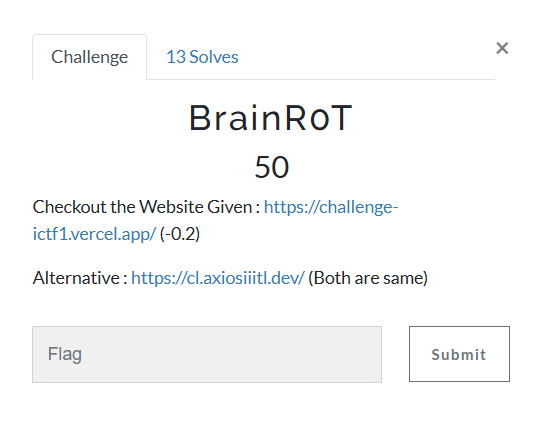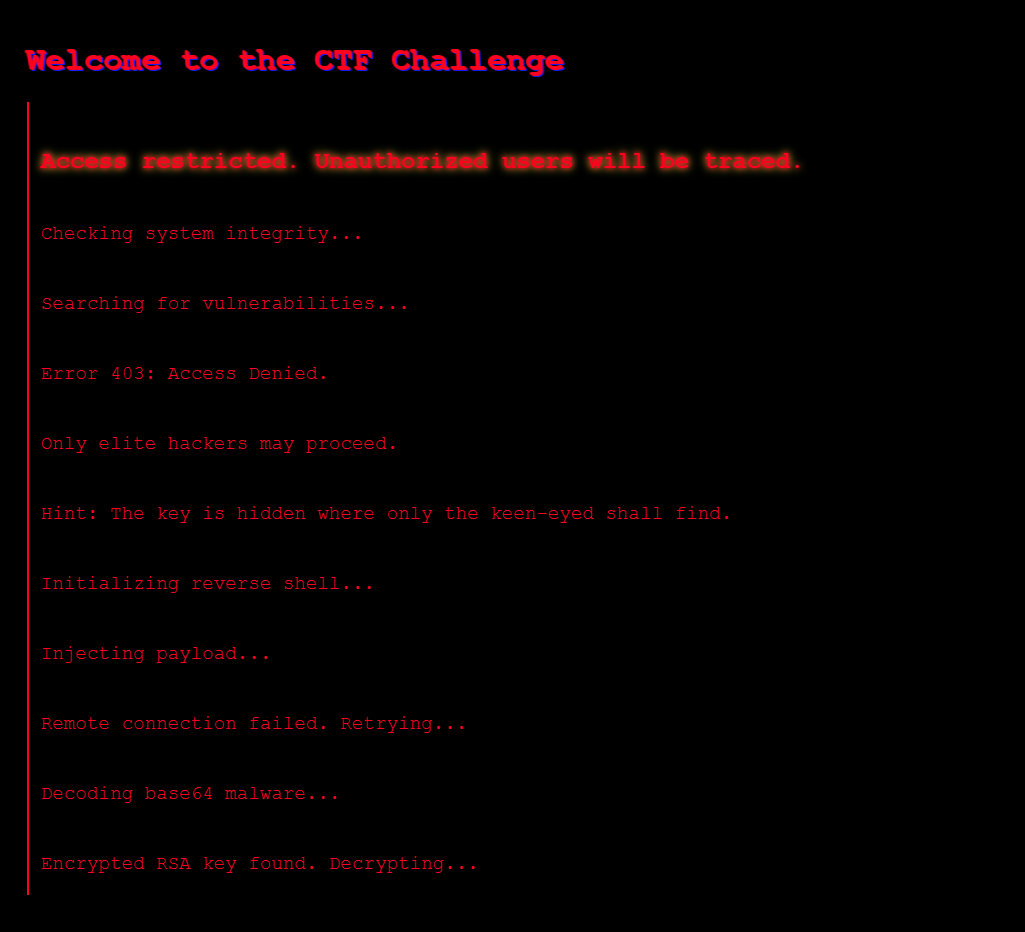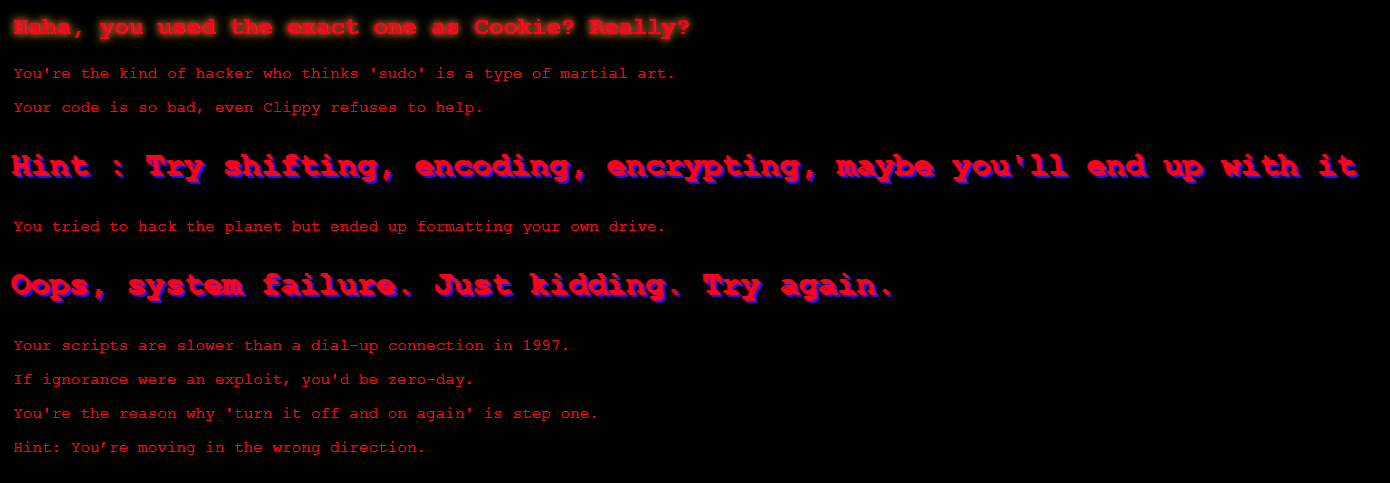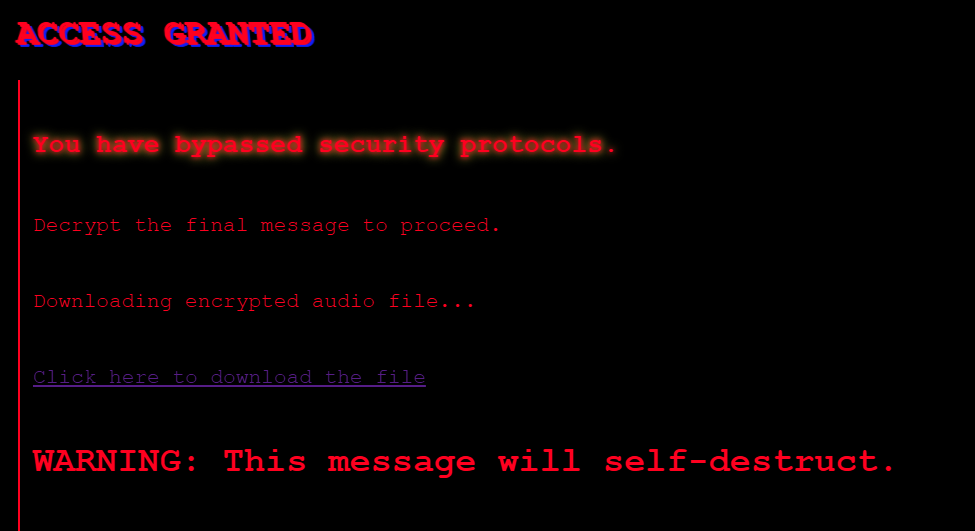Byte Babies
Incognito 6.0: BrainRoT
Apr 30, 2025 - janky - writeup, web, cryptoauthor: @janky solved with: @yoshixi
Challenge Info:
Category: Misc

Solution
Opening up the site, we first see this:

There’s nothing obvious so we’ll go ahead and look into the sources.
<!DOCTYPE html>
<html lang="en">
<head>
<meta charset="UTF-8">
<meta name="viewport" content="width=device-width, initial-scale=1.0">
<title>CTF Terminal</title>
<link rel="stylesheet" href="/static/style.css">
</head>
<body>
<h1 class="glitch">Welcome to the CTF Challenge</h1>
<div class="terminal">
<p class="warning">Access restricted. Unauthorized users will be traced.</p>
<p>Checking system integrity...</p>
<p>Searching for vulnerabilities...</p>
<p>Error 403: Access Denied.</p>
<p>Only elite hackers may proceed.</p>
<p>Hint: The key is hidden where only the keen-eyed shall find.</p>
<p>Initializing reverse shell...</p>
<p>Injecting payload...</p>
<p>Remote connection failed. Retrying...</p>
<p>Decoding base64 malware...</p>
<p>Encrypted RSA key found. Decrypting...</p>
<p class="glitch">CRITICAL ERROR: SYSTEM OVERRIDE DETECTED</p>
<p>Rolling back changes...</p>
<p class="warning">Unauthorized login attempt detected from [UNKNOWN IP]</p>
<p>Encrypting all system files...</p>
<p class="glitch">Kernel panic: fatal system corruption!</p>
<p class="warning">Hint: Not everything is as it seems...</p>
<!-- incognitoctf is yummy -->
</div>
</body>
</html>
There an interesting comment here:
<!-- incognitoctf is yummy -->
Let’s see if it’ll help us out in the future…
Alright, so looking at the network requests, we see something interesting in the headers.

Cookie: admin=none
Well, it may be a reach but since incognitoctf is yummy -> cookie?
Let’s try it out.

We get a really mean message which gives us a hint to use a ROT13 cipher for the cookie, let’s try it.
Result: 
And here I gave up, but my teammate Yoshixi started checking every ROT of the cookie, i.e. ROT1, ROT2, ROT3, ROT4 …
Apparently the other ROTs give you a bunch of different pages, but he gave me this: fkzldkfqlzqc (ROT23)
And he found that this gave you this page:

Great! We get a link to a google drive with an audio file.
link: https://drive.google.com/file/d/1KBKmWwdTnro9WzNw-dm1mVIf14tI5QkD/view?usp=drive_link
If you download it and listen to it, it sounds sped up. So I pop it into audacity and slow down the speed of it and listen closely.

It is a guy saying letters with a very bad mic. It took a long time to actually figure out what he was saying but I ended up on: nksqruxqeulq
Throwing this into dCode, we get this:

This obviously is suggesting that we use the byte file size as the flag and I totally didn’t enter that as it.
So we can just run `ls -l’ on the audio file and we get this:

And we were able to get first blood on it.
